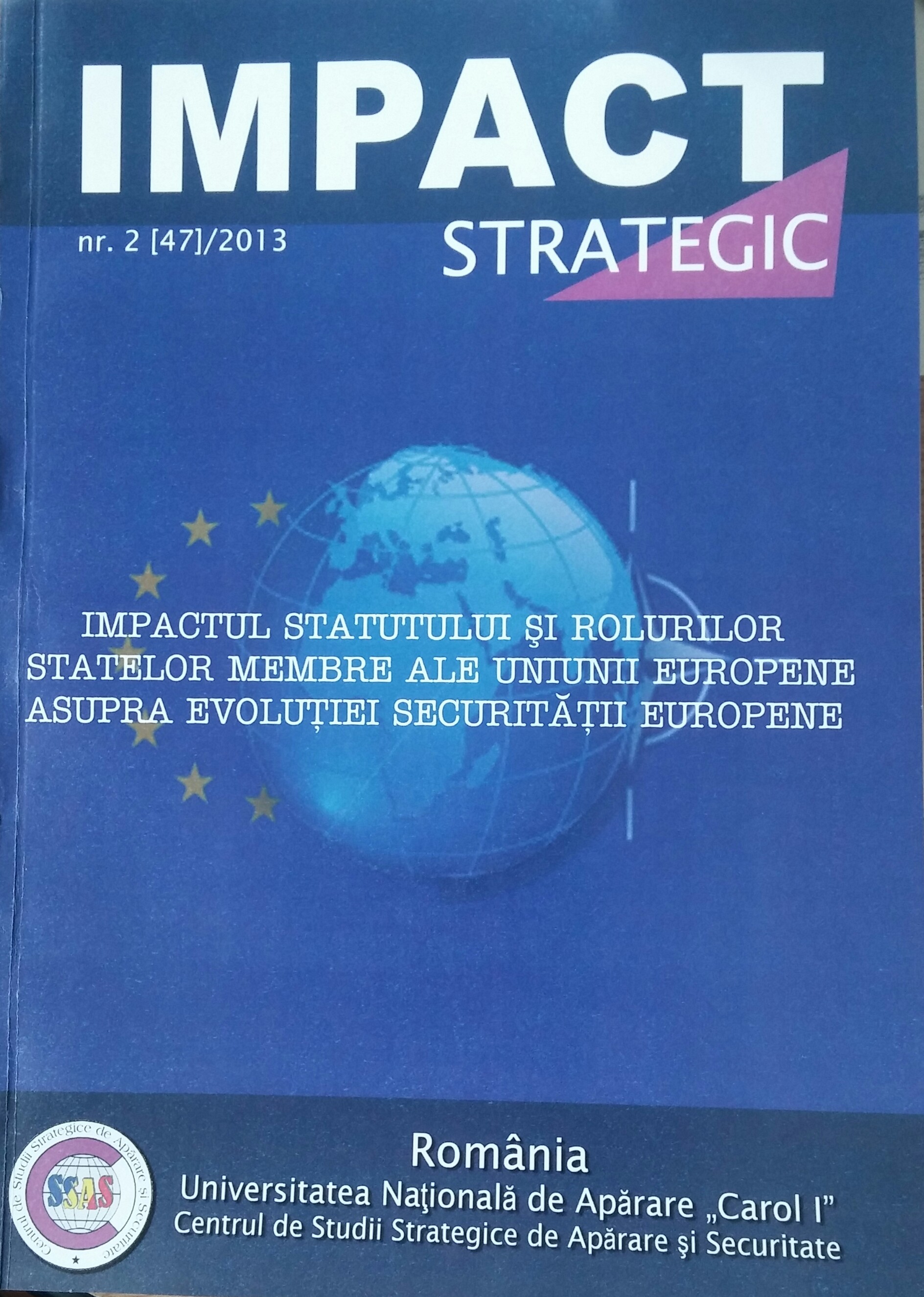Zona Mării Negre – o nouă „zonă gri”?
BLACK SEA AREA – A NEW “GREY AREA”?
Author(s): Marius-Cristian Neacşu, Silviu NeguţSubject(s): Politics / Political Sciences
Published by: Carol I National Defence University Publishing House
Keywords: “grey area”; geopolitical frontier; Black Sea; Russia; Western World
Summary/Abstract: This study represents the result of a thorough research regarding the dynamics of the geopolitical frontier between Russia and the Western world over the last two decades since the end of the Cold War. One of the effects of this dynamic is the emergence of the “grey area” concept (geopolitical indecision area), a concept that evolved from a simple phrase that used to classify the countries that “just broke free from the socialist camp” in the nineties, located in Central and mainly Eastern Europe, to an instrument of foreign policy for Moscow, used for braking the geostrategic expansion of the Euro-Atlantic structures towards its borders; especially in the context of the ever-growing geopolitical behaviour of Russia, beginning with the year 2000, in order to regain its status of Eurasian power. To this end, the revitalization of the two “anchors” – the presence at the Baltic and Black Seas –, was Moscow’s main focus over the last few years. More significant for Romania is the South-Eastern European anchor, the Black Sea area respectively, taking into consideration that we are neighbouring a sea of great interest for Russia, in light of what was mentioned above. Thus, this study gains purpose by shaping the increased potential of the Black Sea to sustain or generate “grey areas”, taking into consideration its complicated role of “hinge” between the different regional geopolitical systems. Stable geopolitical systems in the Black Sea area represent a greater guarantee for the security of small and medium sized countries, such as Romania.
Journal: Impact strategic
- Issue Year: 47/2013
- Issue No: 2
- Page Range: 39-49
- Page Count: 11
- Language: Romanian

